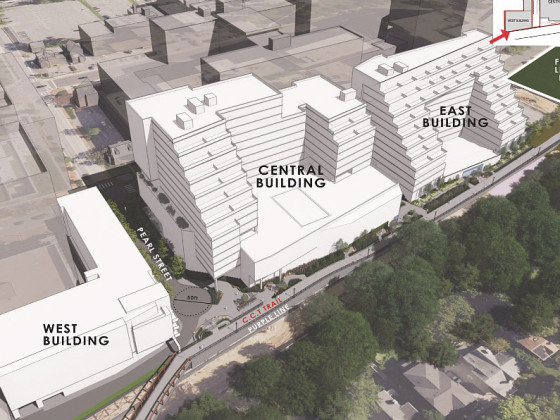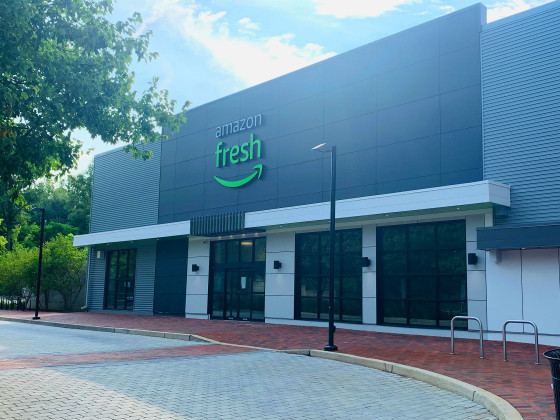 An FAQ on DC's Tenant Opportunity to Purchase Act
An FAQ on DC's Tenant Opportunity to Purchase Act
✉️ Want to forward this article? Click here.
In recent weeks, UrbanTurf has received a number of questions about DC’s Tenant Opportunity to Purchase Act (TOPA), so we decided to answer those questions and others like them in one place. Below is the start to that FAQ, but if you have other questions that are not answered here or in this primer on TOPA, email us at editor2016@urbanturf.com and we will add them in.
Are landlords required to offer their tenant(s) the opportunity to purchase the house or unit prior to listing it, or can tenants be presented with opportunity to purchase after an offer has already been received?
The landlord can already have an offer to purchase from a third party in hand prior to presenting the tenant(s) with an offer of sale.
Is it legal to give a tenant notice to vacate to avoid offering them the right of first refusal?
Landlords cannot terminate a lease with a rent-paying tenant unless it is “for cause”, and tenants can refuse to vacate without being given a legitimate cause for the termination. Even when served a valid eviction, tenants generally have 30 days to remedy whatever violation is cited and the landlord will likely need a court order to carry out an eviction.
If a tenant refuses to relinquish their right of first refusal, does that automatically mean they intend to purchase the property?
In practice, no; the law also gives tenants bargaining power, which can be extremely important and within the spirit of the law if repairs or other guarantees are needed. In many cases, tenants’ concerns are less about being able to purchase the property than to ensure that they receive fair and ethical treatment from a new landlord.
Is there any recourse for landlords who believe that a tenant is simply stalling or otherwise not negotiating in good faith?
Regardless of the motive or tactics of the tenant(s), the landlord is still required to carry out the TOPA process in good faith and according to any stipulations associated with disclosure and time extensions.
What if the property in question has no valid certificate of occupancy or is being otherwise rented illegally or informally?
Even if the rental is illegal or invalid, the tenant still has the right of first refusal.
Does the law also apply to individual condominium units that are being rented out?
Yes, any housing unit that is being rented to another person or persons is subject to TOPA law.
story continues below
loading...story continues above
What is a tenant’s recourse if they are unable to purchase?
A tenant can assign their right of first refusal to another individual or corporation, thus providing themselves more leverage through the negotiating process. This also offers more options in instances where multiple tenants do not come to a consensus on whether to attempt to purchase a property; those who would rather not intervene in the sale or simply move out can assign their rights to whomever would like to continue pursuing buying the property.
Can tenants postpone a sale indefinitely through exercising their right of first refusal?
No; while there are a number of reasons and means by which the timeframe to negotiate can be extended, many of which hinge on technicalities, ultimately, if the tenant fails to secure financing or the ability to match or exceed a legitimate offer that is on the table, a sale to a third-party can go through. Tenants in buildings with five or more units have more flexibility in that there is a mechanism that allows the city to intervene and purchase the property either with or instead of the tenants to preserve affordable housing.
If tenants of a multi-family building make a successful TOPA purchase, what happens next?
A TOPA purchase means that all individual tenants formed an association to purchase the building together, thus ensuring that they each own their individual units and administer any ongoing sales of units or repairs to units, the building and its common areas. In other scenarios, the building is purchased in partnership with the city or with a developer, who has likely committed to making repairs to the units, building and/or its common areas. The developer will typically go on to remodel any vacant units and sell those at market rate.
If a tenant does not want to buy the property nor sell their rights, do they have to move once the property is sold?
No, any new owner assumes responsibility for continuing any valid lease until the tenant is evicted for cause or decides to move out.
If a lease agreement requires tenants to waive their TOPA rights, or to assign those rights back to the landlord, is that lease term enforceable?
No; the District would not honor such a lease because the right of first refusal is a law established by the city. In fact, landlords are required to provide their tenants with DC’s Tenant Bill of Rights along with any other lease-related documents.
Readers, do you have any other questions about TOPA? If so, shoot us an email at editor2016@urbanturf.com.
See other articles related to: landlord, renting in dc, right of first refusal, tenant, tenant rights, tenant-friendly, topa
This article originally published at http://dc.urbanturf.production.logicbrush.com/articles/blog/ut_readers_faq_on_topa/11927.
Most Popular... This Week • Last 30 Days • Ever

While homeowners must typically appeal by April 1st, new owners can also appeal.... read »

A significant infill development is taking shape in Arlington, where Caruthers Proper... read »

A new mixed-use development would bring hundreds of new residential units and a healt... read »

A residential conversion in Brookland that will include reimagining a former bowling ... read »

After years of experimenting with its branded brick-and-mortar grocery concepts, Amaz... read »
DC Real Estate Guides
Short guides to navigating the DC-area real estate market
We've collected all our helpful guides for buying, selling and renting in and around Washington, DC in one place. Start browsing below!
First-Timer Primers
Intro guides for first-time home buyers
Unique Spaces
Awesome and unusual real estate from across the DC Metro














